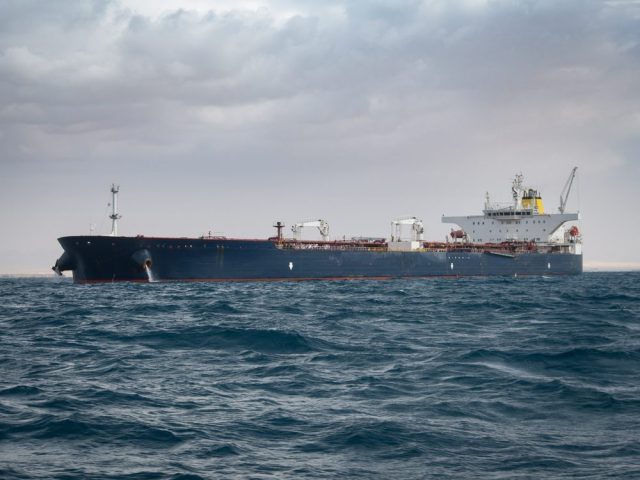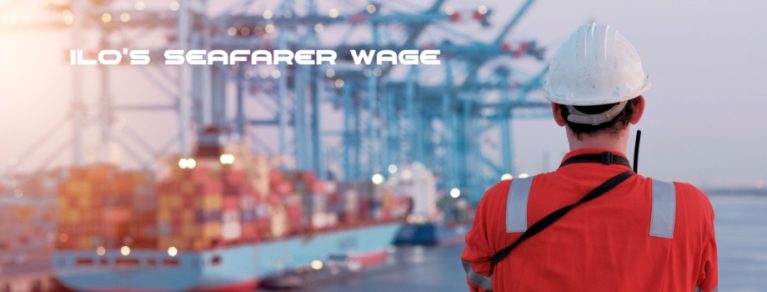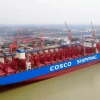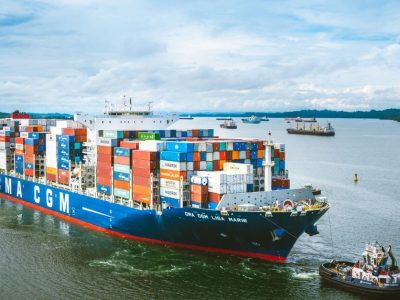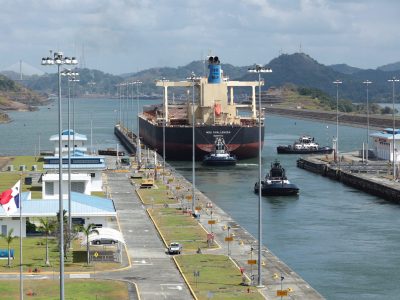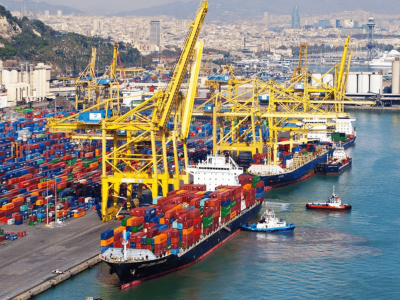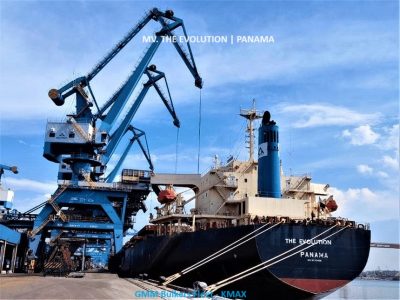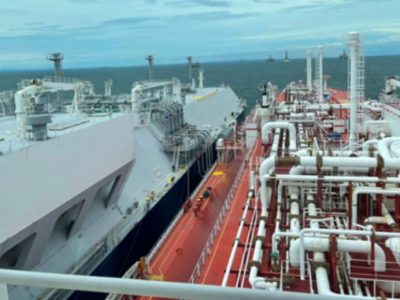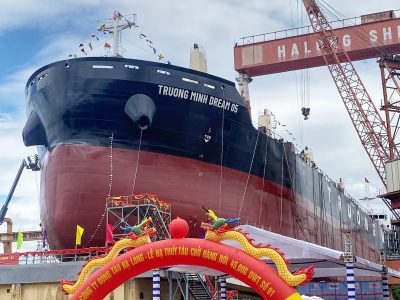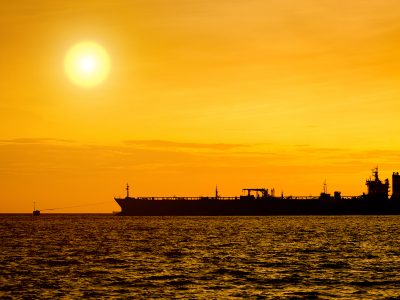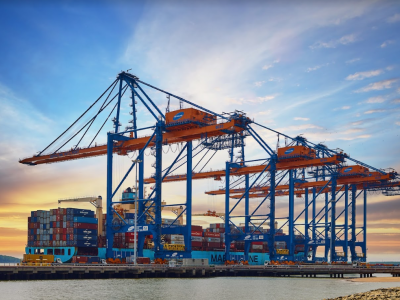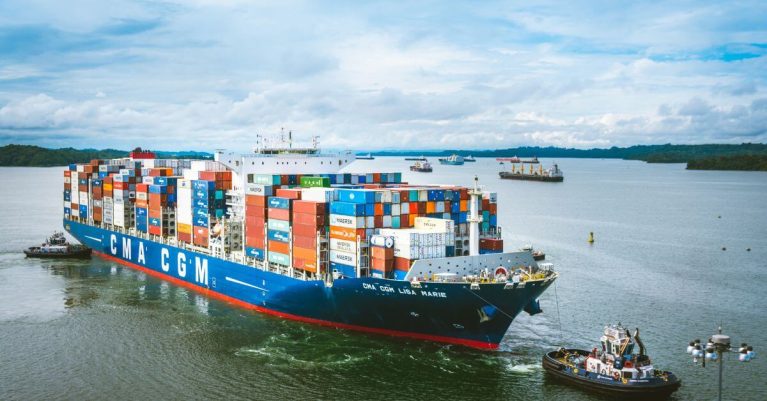By GMM News | 2024-03-28 | International Shipping News |
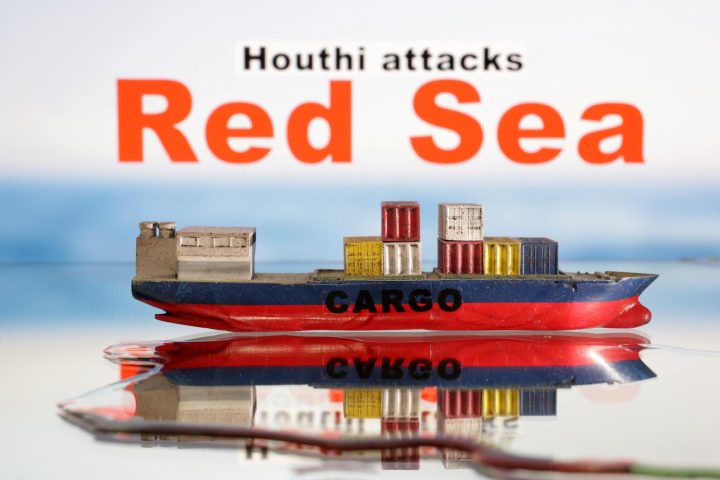
China and Russia reached an understanding following talks between their diplomats in Oman and Mohammed Abdel Salam, one of the Houthis’ top political figures, said the people, who asked not to be named discussing private matters.
In exchange, the two countries may provide political support to the Houthis in bodies such as the United Nations Security Council, according to the people. It’s not entirely clear how that support would be manifested, but it could include blocking more resolutions against the group.
Spokespeople for the governments of China and Russia, as well as the Houthis, including Abdel Salam, didn’t reply to Bloomberg’s requests for comment.
While the Houthis have already signaled Moscow and Beijing’s assets would not be targeted, the talks underscore the increased nervousness among world powers about the group’s missile and drone attacks in and around the southern Red Sea since mid-November.
The Houthis, an Islamist group, say they’re targeting ships linked to Israel, the US and UK. Yet they appear to have mis-identified some vessels and Russia and China may have wanted stronger assurances from the group.
This month, the Houthis hit the True Confidence, a bulk-commodities carrier, causing the first deaths since they started their maritime attacks. The Houthis said the vessel was American. It used to be owned by Los Angeles-based Oaktree Capital, according to a person with knowledge of the matter, but a new, non-US company recently took it on.
Separately, missiles exploded near a ship hauling Russian oil near Yemen in late January. It happened days after a spokesman for the Houthis told a Russian newspaper that Russian and Chinese merchant ships needn’t fear attacks.
Ostensibly, the assaults are to put pressure on Israel to stop its war in Gaza against Hamas, though many analysts doubt the Houthis would end their campaign in the event of a cease-fire or permanent peace deal.
The waterways — including the Bab el-Mandeb strait connecting the Red Sea and Gulf of Aden — are crucial for the global economy and normally around 30% of container cargo flows through them. They also handle a large proportion of oil and liquefied natural gas flows.
Since the attacks started, most Western shipping firms have avoided the strait and are instead going around southern Africa. That’s adding days and significant freight costs onto journeys between Asia and Europe.
Companies from China and Russia haven’t announced they’re avoiding the area and ship-tracking data shows many of them still send their ships through it.Both China and Russia are diplomatic and economic partners of the Houthis’ main military and financial backer, Iran. Most Iranian oil exports go to China and the Islamic Republic has, according to the US and European Union, provided drones and other weaponry to Russia for its war in Ukraine.
Still, the Houthis retain plenty of independence from Tehran. Iran has said it supports the Houthis but that they make their own decisions on political and military matters.
The Houthis are a rebel group that took control of Yemen’s capital, Sanaa, at the start of the country’s civil war in 2014. They now also hold the key Red Sea port of Hodeidah.
They have survived years of bombing from a Saudi-led coalition aimed at ousting them. There’s been a tentative truce in the civil war for about two years and the Houthis are involved in peace talks with the Saudis.
But the group isn’t formally recognized by international governments and is on a US terrorism list.
China and Russia have already given some diplomatic support to the Houthis. In early January, they abstained from a resolution sponsored by the US and Japan that condemned “in the strongest terms” the Houthi attacks on ships. Hours after it passed, the US and UK began airstrikes against targeting the Houthis’ military infrastructure, including missile launch sites and radar stations.
In mid-February, China and Russia questioned the legality of the strikes against the Houthis and said they had never been authorized by the Security Council.
The US and UK moves have failed to deter the Houthis. Even so, the Pentagon says the group’s attacks are becoming less frequent as its capabilities are degraded.
The Houthis’ goal is “sinking America, Britain and the West in the swamp of the Red Sea,” Ali Alqhoom, a senior Houthi political leader, said on X, formerly known as Twitter. He claimed China and Russia back the group’s campaign, even though they’ve both said they want ships to move freely through international waters. Beijing has called for a halt to the attacks more than once.Last week, the Houthis’ leader, Abdul Malik Al-Houthi, vowed to expand the campaign to the Indian Ocean and hit vessels traveling around South Africa.
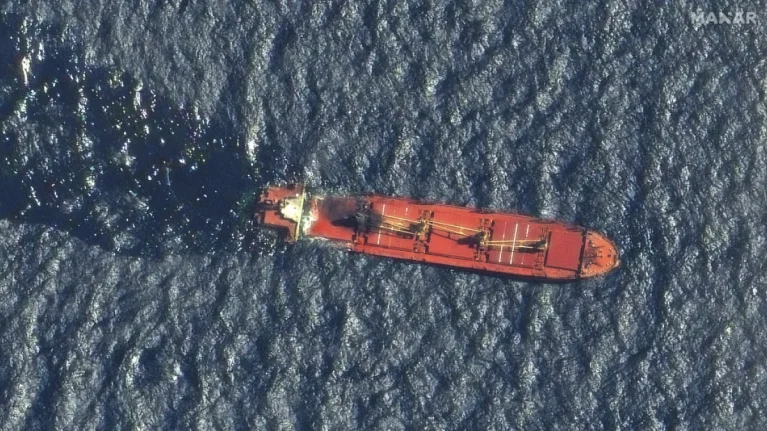
© 2024 Bloomberg L.P.

